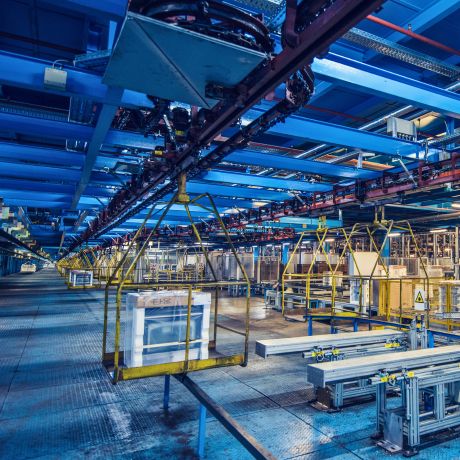Steel 35CD4 - 1.7220 - 34CrMo4 - 35CrMo4 - FE-PL1503
Discover 35CD4 steel, a Chromnile (Cr-Mo) alloy offering excellent strength and good heat treatability. This grade, equivalent to 34CrMo4 or 4135, is used in the manufacture of parts subjected to high loads (such as crankshafts, shafts, gears, and pressure vessels), thanks to its robustness and ductility achieved through quenching and tempering. It is commonly employed in the mechanical, petrochemical, and aerospace industries.
Available shapes :
Order 35CD4 Online
Select the desired form, standard, or specification and place your order with one click. A member of our sales team will contact you promptly to finalize your order.
General Introduction to the 35CD4 Steel Alloy
35CD4 steel is a low-alloy construction steel containing chromium and molybdenum, belonging to the so-called “Chromnile” (Cr-Mo) family. It offers high strength, toughness, and excellent heat treatability, making it suitable for parts subjected to significant mechanical or thermal stress.
From a standards perspective, 35CD4 (AFNOR, with specification AIR 9160/C) is also referred to as 34CrMo4 (EN 10083-3) or 1.7220 (WNr) in Germany. In the United States, its equivalent is 4135 (AISI/SAE).
Mechanical Properties, Heat Treatment, and Weldability
Depending on the heat treatment applied, 35CD4 steel can achieve a tensile strength of up to 1320 MPa and a yield strength above 740 MPa. It is particularly valued for its resilience (> 500 kJ/m²) and its hardness (> 217HB). The significant variation in tensile strength largely depends on the various treatment methods used, whether for bars or tubes.
This grade is generally selected for its quenching and tempering capabilities. Oil quenching, performed at around 850 to 930 °C, is followed by controlled cooling and then tempering, which helps to fine-tune the final hardness and reduce internal stresses.
Initially, 35CD4 exhibits a fine, homogeneous ferrite-perlite structure; after quenching, it transforms into martensite, which tempering subsequently converts into sorbite or troostite depending on the temperature and duration of the process.
35CD4 demonstrates weldability that is considered rather… delicate. To minimize the risk of cracking, it is recommended to preheat the steel (between 200 and 300 °C) and then apply a stress relief or tempering treatment after welding to manage internal stresses.
Industrial Applications
Thanks to its excellent mechanical properties, 35CD4 is commonly used for parts:
- Subject to high mechanical loads: crankshafts, connecting rods, gears, transmission shafts, rotors, etc.
- Operating at moderate temperatures (up to around 500–525 °C): boilers, gas turbines, jet engines, bolting in refineries or power plants, etc.
- Exposed to high pressure: gas cylinders, pressure vessels, drilling pipes (down to about 2,000 m in some cases).
- Used in transmission components: gears for locomotives, turbine shafts, gear reducers, etc.
This alloy is therefore widely employed in various industries (mechanical, petrochemical, railway, aeronautical…) to produce critical parts. For use in corrosive environments or at very high temperatures, more specialized grades are required (e.g., stainless steels or superalloys).
Chemical composition of 35CD4
The variations in its chemical composition for aerospace.
| % | C Carbon | Cr Chromium | Mn Manganese | Mo Molybdenum | Ni Nickel | P Phosphorus | S Sulfur | Si Silicon |
|---|---|---|---|---|---|---|---|---|
| Min. | 0.30 | 0.90 | 0.50 | 0.15 | <0.00 | <0.00 | <0.00 | 0.15 |
| Max. | 0.37 | 1.20 | 0.80 | 0.30 | 0.40 | 0.025 | 0.020 | 0.40 |
Related steel alloys
12NC12, FE-PL61
ROUND BAR
15CDV6, 15CrMoV6, 1.7734, 1.7736, AIR 9160
SQUARE BAR, RECTANGULAR BAR, ROUND BAR, WIRE, SHEET, ROUND TUBE
16NCD13, 1.6657, 14NiCrMo 13-4
ROUND BAR
25CD4S, 1.7218, 25CrMo4, FLE-PL1502
RECTANGULAR BAR, ROUND BAR, SHEET, SQUARE TUBE, ROUND TUBE
300M, A646, K44220
SQUARE BAR, ROUND BAR
30CD12, 1.8515, 30CrMo12, 31CrMo12, FE-PL1501
ROUND BAR
30CND8, 1.6580, 30CrNiMo8
ROUND BAR
30NCD16, 1.6747, 30NiCrMo16-6, FE-PL2107, 30Ni4CrMoA
SQUARE BAR, RECTANGULAR BAR, ROUND BAR
32CDV13, 1.8522, 33CrMoV12, FE-PL1504
ROUND BAR
35NC6, 1.5815, 35NiCr6, FE-PL2102
SQUARE BAR, HEXAGONAL BAR, RECTANGULAR BAR, ROUND BAR, WIRE
35NCD16, 1.6773, 36NiCrMo16, FE-PL2108
SQUARE BAR, RECTANGULAR BAR, ROUND BAR
40CAD6-10
ROUND BAR
40CDV12, 40CrMoV12, FE-PL1507
PROFILE
40NCD7, 40NiCrMo7
ROUND BAR
42CD4
ROUND BAR
45SCD6
ROUND BAR
C75S
SHEET
DC04, Fe P04, St 14, ES
SHEET
E15CDV6
ROUND BAR, SHEET
E16NCD13
ROUND BAR
E32CDV13
RECTANGULAR BAR, ROUND BAR
E35NCD16
ROUND BAR
E40CDV12
ROUND BAR
E4330, 4330 Mod, A646 Grade 5
ROUND BAR
FER PUR
SHEET
GENRE STUB
ROUND BAR
S145F
SQUARE BAR, RECTANGULAR BAR
S145H
ROUND BAR
S534
SHEET
S97D
ROUND BAR
S98D
ROUND BAR
S99
ROUND BAR
X210CR12
ROUND BAR
X30Cr13, Z30C13
ROUND BAR
XC18S
ROUND BAR, SHEET, ROUND TUBE
XC38
ROUND BAR
Z230KDWVC11
ROUND BAR
Key properties
The most remarkable properties of this steel alloy
Tensile Strength
880-1320 MPa
Impact Toughness
≥500 kJ/m²
Yield Strength
≥740 MPa
Brinell Hardness
≥217








